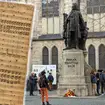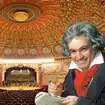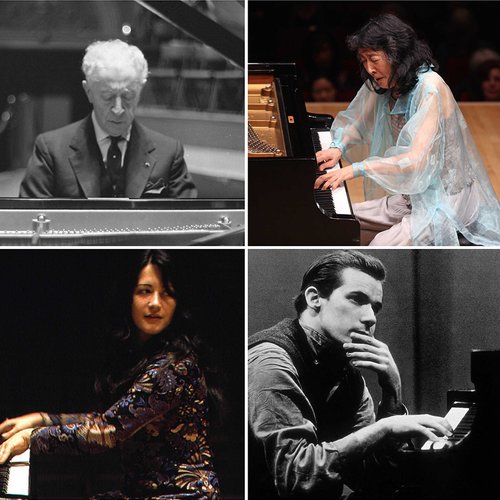Bach's biography: musical study in Ohrdruf and Lüneburg (1695 - 1702)
After the death of both his parents, ten-year-old Bach went to live with his 24-year-old brother 30 miles away from his birthplace. It was here he excelled in his musical studies and was inspired to become a professional musician.
Despite the tragic circumstances which forced the young Bach to leave his hometown and live with his elder brother, organist Johann Christoph, he was soon able to discover a vast musical world. The young Bach, together with his five nephews, studied happily, learning the organ and harpsichord to a high standard. Living with the local church organist certainly had its advantages and Bach soon had access to the instrument - he even watched it being constructed.
As well as being a keen student, excelling in Latin, Greek and theology, Bach soon found himself in the choir at his grammar school, where he made quite an impression on his choir master, Elias Herda. Luckily for Bach, Herda held a scholarship at a monastery 180 miles away in Lüneberg, and arranged for the young musician to take up a place there.
The spring of 1700 saw the 15-year-old Bach set off for the monastery, accompanied by schoolfriend Georg Erdmann. His dedication to his musical education was clear even then, as he tackled the 180-mile journey on foot in order to reach the town in north Germany.
Luckily, after arriving in Lüneburg and enrolling in the Michaelisschule choir, Bach's musical world opened up further. Not only was he invited to sing in the Matins Choir - effectively, a chamber choir for the best singers - but he was able to make use of the grammar school's extensive music library and play the harpsichord and three-manual organ.
Thanks to his stunning boy soprano voice, and, later, his talents on the organ, violin and harpsichord, the teenager was introduced to a number of influential noblemen and musicians, most notably, organist Georg Böhm. A friend of the Bach family in Ohrdruf, Böhm held the post of local church organist at the Johanniskirche, and introduced Bach to French instrumental music and organ music from Hamburg.
After a wide-ranging musical education, the young Bach decided to try and follow in his family's footsteps and try and find employment as an organist. He applied unsuccessfully for the organist's post at Jakobkirche, Sangerhausen, before setting his sights on a post in Arnstadt - and his musical career began in earnest.




























